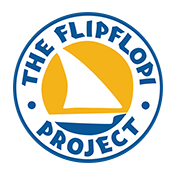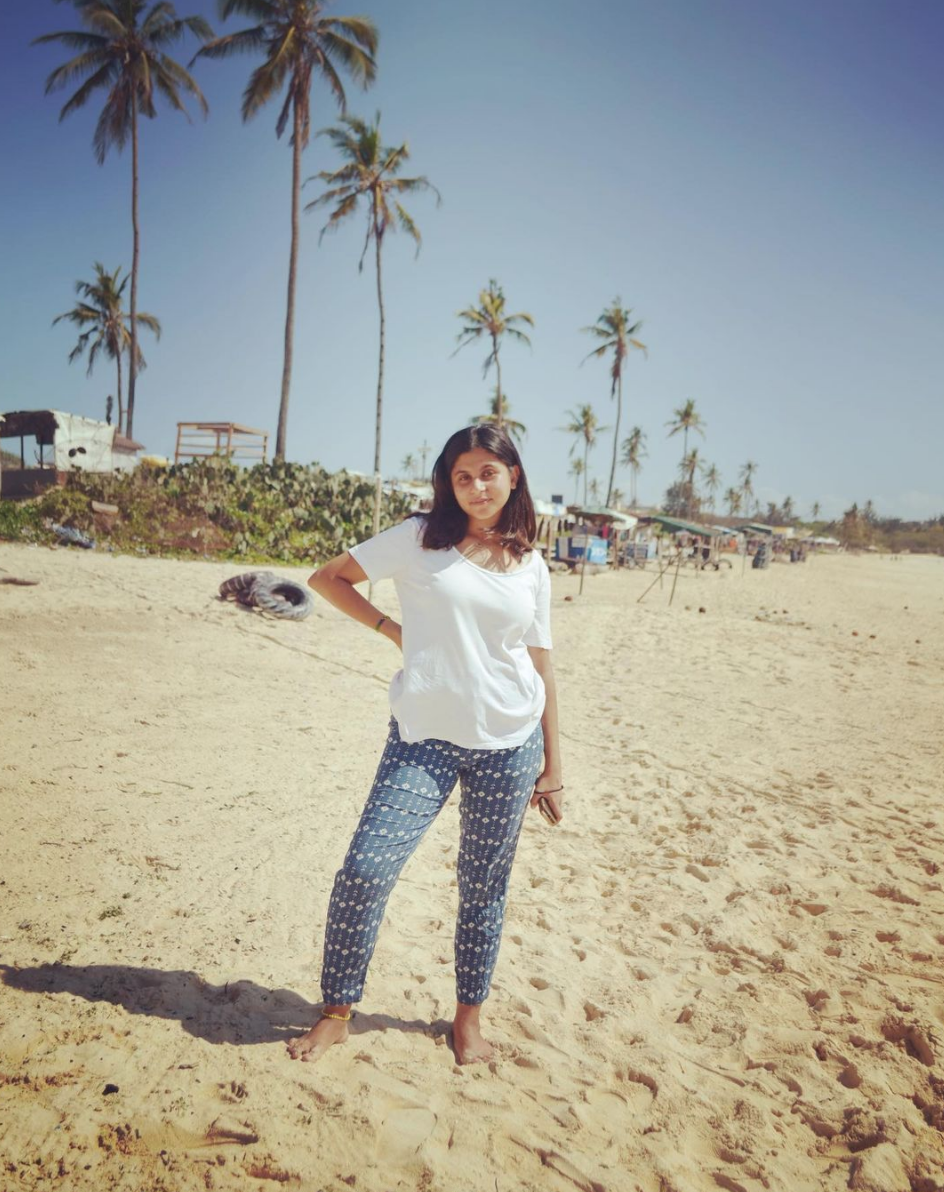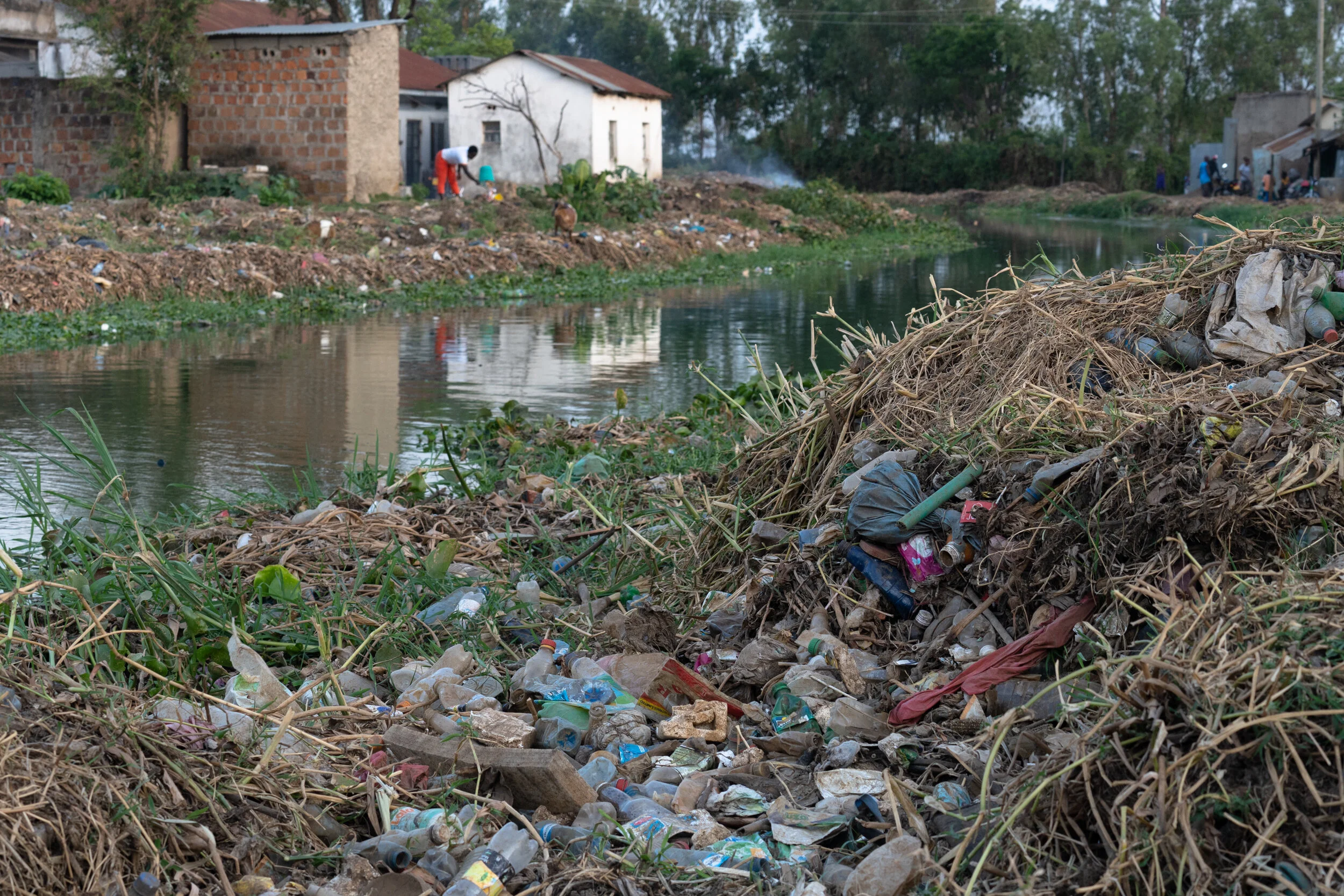Meeting an Inspiring Plastic Revolutionary in Tanzania
Maliha on World Clean Up Day on Coco Beach in Dar Es Salaam, Tanzania. © Maliha Sumar
During the Flipflopi’s time in Tanzania we are honoured to be working with the youngest member of our team - 19-year-old Maliha Sumar.
Since the tender age of 14 Maliha has been committed to social justice and environmentalism and has spent the last few years dedicating herself to learning new sustainable skills such as permaculture, composting, recycling and seaweed farming.
When she moved back to Tanzania from London, UK she was blown away by the beauty of Tanzania. But, there was something hindering that beauty - plastic pollution. She remembers going to the beach with friends and being unable to swim due to the countless plastic bags floating around her.
It was at that point she decided to create more awareness around the destructive habits of developing and developed societies. Her desire is for everyone to be a conscious and careful consumer and to take responsibility for their actions. As she says, “we carry the most power in the products we buy, in the companies we buy from and the values we support” and it’s time we start using that power.
Carrying out her responsibility to respect the earth
Instead of identifying as an environmentalist, Maliha says she is simply, “carrying out my responsibility to respect earth and ensure that I am nurturing life on earth not destroying it. And this is the responsibility of every single person.”
Rubbish piling up on the shores of a river feeding into Lake Victoria. © The Flipflopi, Umber Studios
Because of this thinking she sees it as her social responsibility to educate communities about climate change and plastic pollution. As she rightly states, lasting and impactful change begins at a community level. After all, there isn’t a single person not affected by climate change and plastic pollution. This is why it’s our collective right to understand the problem and begin to intentionally take action.
After all, as she says, ‘it was community spirit and pride in the heritage and nature of Lamu that sparked the creation of the first recycled dhow that is now taking the message of a plastic revolution across the world’.
So why can’t we encourage many other amazing things within communities?
Making her mark on a global stage
In 2019 - at only 17 years old - Maliha coordinated My Mark My City in Tanzania in partnership with Museum for the UN. My Mark My City allowed Maliha to network to engage young people who are all making their own mark on tackling the climate crisis. Global webinars have been held with other UN Live changemakers to allow discussions and knowledge sharing across the world.
The initial programme in Tanzania though worked with Kijana Kwanza - a home for neglected children - to teach the students about environmental issues we’re all facing and how they can make a difference and live sustainably using art, performance and discussions. As part of the programme, a compost site was established to support the school’s self-sustainable food garden.
The zero-waste club at Mtakuja School. © My Mark My City
At Mtakuja another school in Dar es Salaam called a zero-waste club was initiated within the school. This allowed students to dedicate their time to discuss important matters concerning the environment and share knowledge of how people can take action.
Finding local solutions to global problems
Just as Flipflopi have always championed local actors and community groups to begin tackling the global problems of climate change and plastic pollution Maliha has and continues to work at a local level to find beneficial ways to deal with this issue.
While at school she founded her own Zero-Waste Club that lobbied the school administration to discontinue the use of plastic bottles in the school canteen and encourage bringing reusable bottles to school.
As part of My Mark My City, a workshop of 200 young people was held to brainstorm local solutions to the problems we are facing. This created space for a very important conversation and sparked interest with organisations like Nipe Fagio where we plan to have a waste management and community information system in the Mbezi river and continue the important conversations and actions within schools.
Using her considerable influence she is now actively working with local governments to crack down on fly tippers as well as raise awareness within communities about the dangers to human health that the climate crisis brings.
Connecting the dots using art in Mwanza
Throughout our travels around Lake Victoria the Flipflopi have connected with local artists passionate about the environment who are using their talents to draw attention to the crisis our world is now facing.
And it’s with thanks to Maliha that we have been able to replicate this on the ground in Mwanza. Maliha alongside Emedo - a local organisation working to tackle the environmental, social and economic challenges facing the Lake Victoria region.
They’ve been working specifically to deliver a booth on the shore to raise awareness about the issue of plastic pollution and give communities actionable information as to what they can do personally to tackle this problem.
The inspiration for the recycled booth in Mwanza with thanks to Nipe Fagio.
The booth will be built using used plastic bottles as walls, due to this visitors will be encouraged to take a look to see and read about the different aspects of climate change. In addition, this will support the WAWATA womens group where they can have a base to operate from where they can collect, separate and even upcycle the waste they collect.
A similar project has previously been implemented and is successfully operating on one of the most established and popular beaches in Dar es Salaam – Coco Beach.
They’re also working with local artists to create a mural to draw attention to the hazards of plastic pollution in Lake Victoria and why it’s so urgent that we get justice for our planet by pressuring governments and corporations to implement a single use plastic ban.
The mural will show a real life depiction of the direct impact of plastic pollution has on the biodiversity of the lake and human health. The hope is that it will encourage communities and governments to see urgent action must be taken now.
It’s with thanks to support from Mwanza City Council that the mural will be front and centre in the city next to one of the cities greatest landmarks - Bismarck Rock.
Working together for a more harmonious world
While the Flipflopi are humbled to be working with such an environmental powerhouse, for Maliha partnering with the Flipflopi means the possibility of a better and more harmonious world.
The Flipflopi as she entered Tanzanian water on Lake Victoria. © The Flipflopi, Umber Studios
The magic of the Flipflopi has shown her, ‘the power of people coming together for a cause greater than themselves and achieving what would otherwise be seen as impossible.’ Because the further the Flipflopi sails, the closer we get to banning single-use plastics.
Now though, we all turn to those in power. Because for lasting change to happen in this region tough actions must be taken against continued pollution and polluters. And Maliha has just a few suggestions as the future of Tanzania and the world…
Perhaps it’s time to listen to her and the many millions of young people out there who are actively begging governments and corporations to reconnect with the nature that surrounds them to begin working with it, and not against it.
And you can show your support for that action now by taking one minute to sign our petition to ban single use plastics in East Africa.
If you want to visit the living art created by Maliha and her team in Mwanza it’s live now.
The mural is at Bismarck Rock and the Eco Education Centre is at Kamanga Market.
Can you help us to continue our work in Tanzania?
We are kickstarting the #plasticrevolution in Tanzania and we want to make sure the message is spread far and wide. That’s why we’re working with local partners EMEDO and Maliha Sumar to continue spreading the message even when the boat has left the lake.
In Mwanza, we launched an Eco Education Centre to empower young people with the knowledge and skills, they need to make cash from trash and to work towards a single-use plastic future.
To learn more and donate to the cause, click here. Any help you can give us would help us take a step closer to a plastic-free future.
If you'd like to stay up to date with Flipflopi events, milestones and achievements hit the button below to join our non-spammy mailing list!





